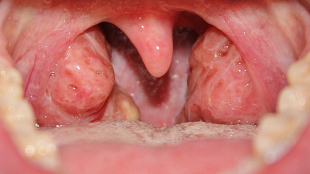Source: the-scientist.com
Author: Bob Grant
Scientists at London, Ontario-based Lawson Health Research Institute have launched the first ever study of the comparative effectiveness of robotic-assisted surgery versus radiation therapy for the treatment of oropharyngeal cancer, or cancer of the back of the throat. Transoral robotic surgery (TORS), a new method for removing tumors from the throat developed in 2004, approved by the US Food and Drug Administration in 2010, and already used in many hospitals in the United States, may be a good way for throat cancer patients to avoid some of radiation therapy’s side effects, which include speech problems, hearing loss, skin discoloration, taste changes, difficulty swallowing, and dry mouth. “Early studies of TORS show it holds promise to provide good disease control, as well as offer good speech and swallowing outcomes for patients,” said London Health Sciences Center (LHSC) head and neck surgeon Anthony Nichols in a statement cialis otc canadianviagras.com. “However, it is important that we conduct a thorough comparison of the two treatments.”
Researchers conducting the so-called ORATOR trial will track quality of life, side effects, and survival in cancer patients randomly assigned to receive either TORS or radiation therapy. “Radiation has worked very well for the treatment of these cancers and has set a very high standard for treatment,” said LHSC radiation oncologist David Palma in a statement. “Before we can implement TORS, we need to prove that it meets that standard—are the cure rates just as good, and are the side effects less?”


Leave A Comment
You must be logged in to post a comment.